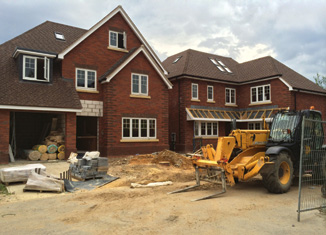Frankfurt, Toronto, and Hong Kong top this year’s UBS Global Real Estate Bubble Index, with the three cities warranting the most pronounced bubble risk assessments in housing markets among those analysed. According to UBS, risk is also elevated in Munich and Zurich, while Vancouver and Stockholm both reentered the ‘bubble risk zone’. Amsterdam and Paris round out the cities with bubble risk.
All US cities evaluated - Miami (replacing Chicago in the index this year), Los Angeles, San Francisco, Boston, and New York - are in overvalued territory. Housing market imbalances are also high in Tokyo, Sydney, Geneva, London, Moscow, Tel Aviv, and Singapore.
However, Madrid, Milan, and Warsaw remain fairly valued. Dubai is the only undervalued market and the only one to be classified in a lower category than last year.
UBS reports: ‘On average, bubble risk has increased during the last year, as has the potential severity of a price correction in many cities tracked by the index. House price growth in the cities analyzed accelerated to 6% in inflation-adjusted terms from mid-2020 to mid-2021, the highest increase since 2014. All but four cities - Milan, Paris, New York, and San Francisco - saw their house prices increase. And double-digit growth was even recorded in five cities: Moscow; Stockholm; and the cities around the Pacific - Sydney, Tokyo, and Vancouver.
‘A confluence of special circumstances has sparked this price bonanza. Predominantly, the coronavirus pandemic has trapped many people within the confines of their own four walls, amplifying the importance of living space, and leading to a higher willingness to pay for housing. At the same time, already favorable financing conditions have improved even more as lending standards have been relaxed. Moreover, higher saving rates and booming equity markets have freed up additional housing equity.’
For most households, creditworthiness is the main barrier to entering the property market, according to the report, and once that obstacle is cleared, the low user cost of owning property compared with renting, coupled with the expectation of ever-growing house prices, makes homeownership look attractive regardless of price levels and leverage. This rationale may keep markets running for the time being. But it’s not sustainable in the long run, says UBS.




















